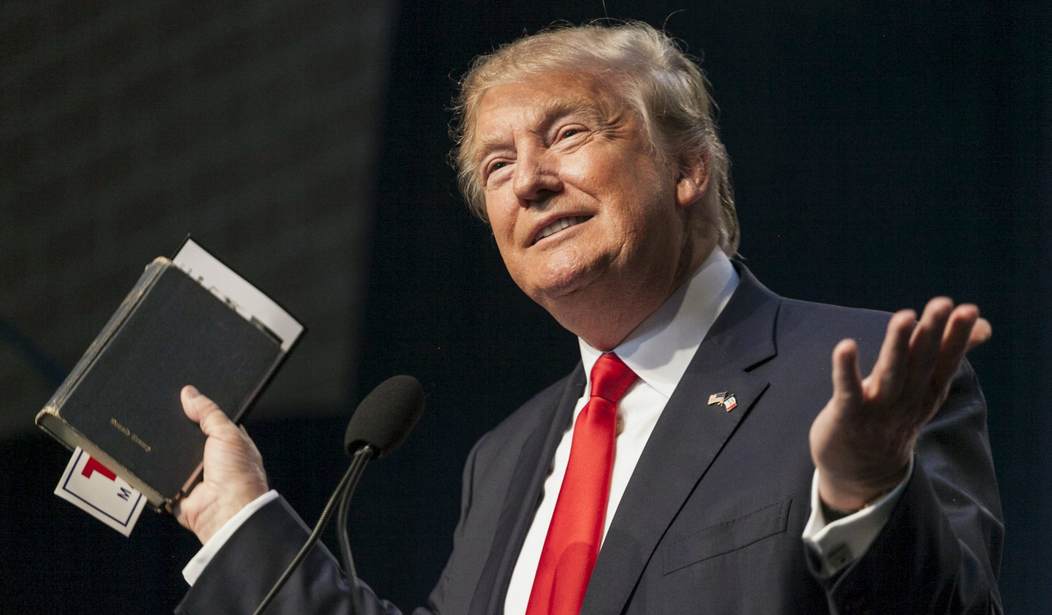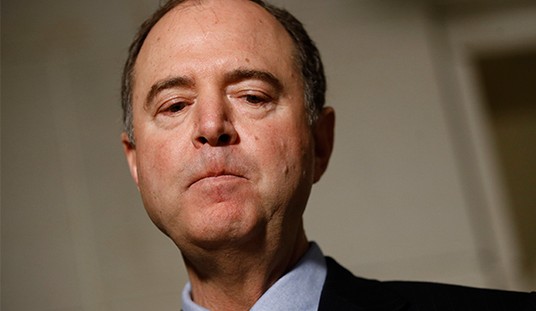In President Donald Trump’s inaugural address, the new president quoted the Bible, but he actually added something to the Word of God.
“The Bible tells us ‘how good and pleasant it is when God’s people live together in unity,'” Trump declared. He then added, “When America is unified, America is totally unstoppable. … and most importantly, we will be protected by God.”
Trump was indeed quoting scripture, and evangelical leader Franklin Graham identified which verse:
President @realDonaldTrump just read Psalm 133:1 at the inauguration, “how good and pleasant it is when brothers dwell in unity!”
— Franklin Graham (@Franklin_Graham) January 20, 2017
The verse is Psalms 133:1, which states: “Behold, how good and pleasant it is when brothers dwell in unity!” (English Standard Version)
Notice the missing phrase? That’s right, the Bible doesn’t actually say “when God’s people live together in unity,” it says “when brothers live together in unity.” The Hebrew word for “brothers” (אַחִ֖ים) is used in the books of the law to refer to brothers, as in Numbers 27:10-11, which commands the people, “If he has no brothers, then you shall give his inheritance to his father’s brothers. If his father has no brothers, then you shall give his inheritance to his nearest relative in his own family.” There is a separate word for kinsman, but Psalm 133:1 does not use it.
While this may seem nitpicky, the point — underscored by Trump’s further declaration that America “will be protected by God” — is important.
Trump — or one of his speech writers — purposefully fit in “God’s people,” with a clear meaning that the United States of America is “God’s people.” When Trump called for American solidarity, declaring that “when America is united, America is totally unstoppable,” he added that “we will be protected by God.”
Make no mistake: Trump is invoking the American civil religion, calling the United States a promised land and linking our country to the Jewish people. This is not a new trend, and Trump’s remarks actually give some reason for hope that his version of America’s civil religion will be more restrained than it has been in the recent past.
America’s first civil religion, established by President George Washington, was restrained, explained Walter A. McDougall, a history professor at the University of Pennsylvania and author of The Tragedy of U.S. Foreign Policy: How America’s Civil Religion Betrayed the National Interest. Washington encouraged America to avoid “entangling alliances,” to focus on western expansion, to follow the lessons of history — that republics fall when overpowered by a strong leader — and to emphasize the limits of a fallen human nature.
In contrast, the 20th century developed a new civil religion, focused originally on fighting Communism but then expanded to bring globalism and a “heaven on earth.” With this came a triumphalist image of America bringing peace and democracy to foreign countries: Iraq, Afghanistan, Libya, Syria, and others.
Trump’s speech represented a partial return to the old George Washington model. He echoed the restrained view, declaring, “We do not seek to impose our way of life on anyone, but to let it shine as an example. We will shine for all to follow.” This is the old idea of America as a “city on a hill,” an idea taken from scripture but not applied as Jesus’ words would apply it.
This restrained view is a positive change from the expansionist policies of George W. Bush and Barack Obama, but Trump also emphasized destroying the Islamic State (also known as ISIS). It will be fascinating to see how the new president balances his call to put “America First” and his pledge to destroy this evil terrorist state.
In any case, Trump fulfilled his informal presidential role as the nation’s high priest, declaring the United States a people chosen by God. This is not an idea based on scripture, but on American history. One of the ways early Americans explained their surprising victory over the British Empire — the most powerful country in the world at the time — was by saying God was on the side of independence and American freedom.
Trump’s addition to scripture to fit this idea into his inaugural address is striking, even if it is in fitting with the country’s historic civil religion. It seems reminiscent of Vice President Mike Pence’s use of 2 Chronicles 7:14 in his own oath of office (a verse also used by Ronald Reagan), despite the fact that that particular verse did not refer to America and is part of a passage promising God’s wrath if the nation of Israel rejected God.
Nevertheless, the American civil religion has inspired the country — especially in Abraham Lincoln’s second inaugural address — and will continue to do so. To what extent presidents should twist scripture in support of it is certainly to be debated, but it is undeniable that Trump added words to the Bible in his address.








Join the conversation as a VIP Member